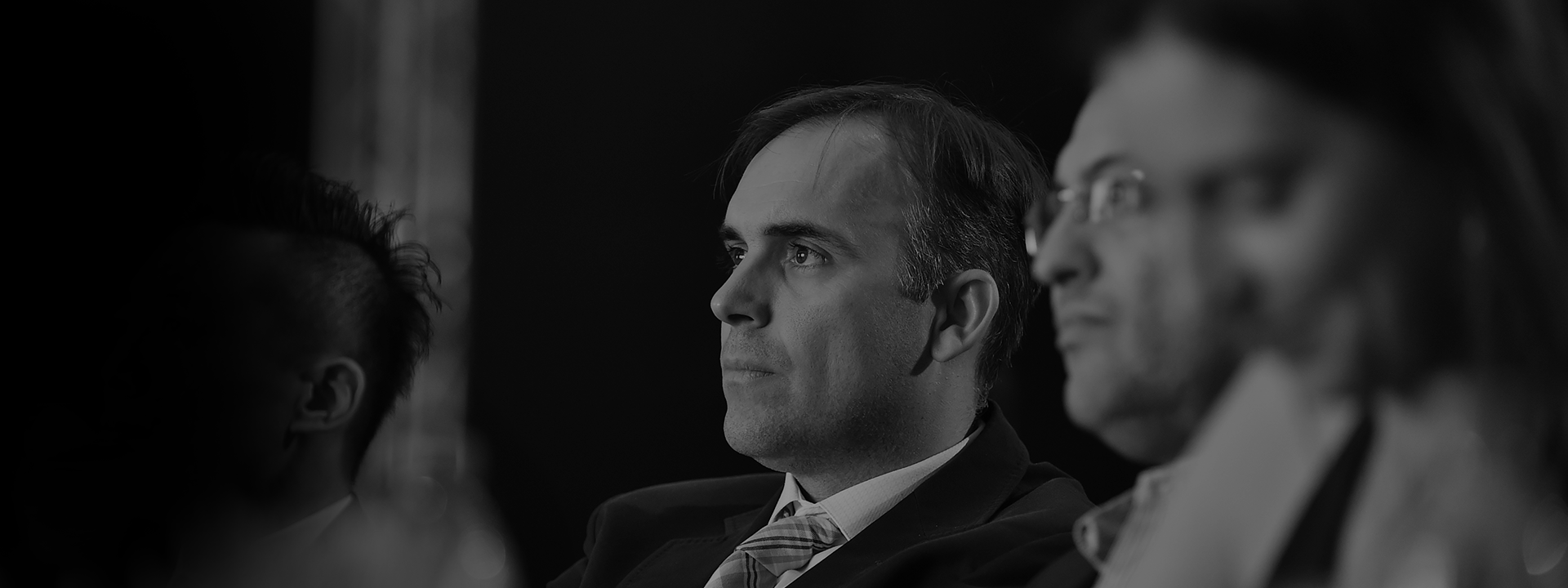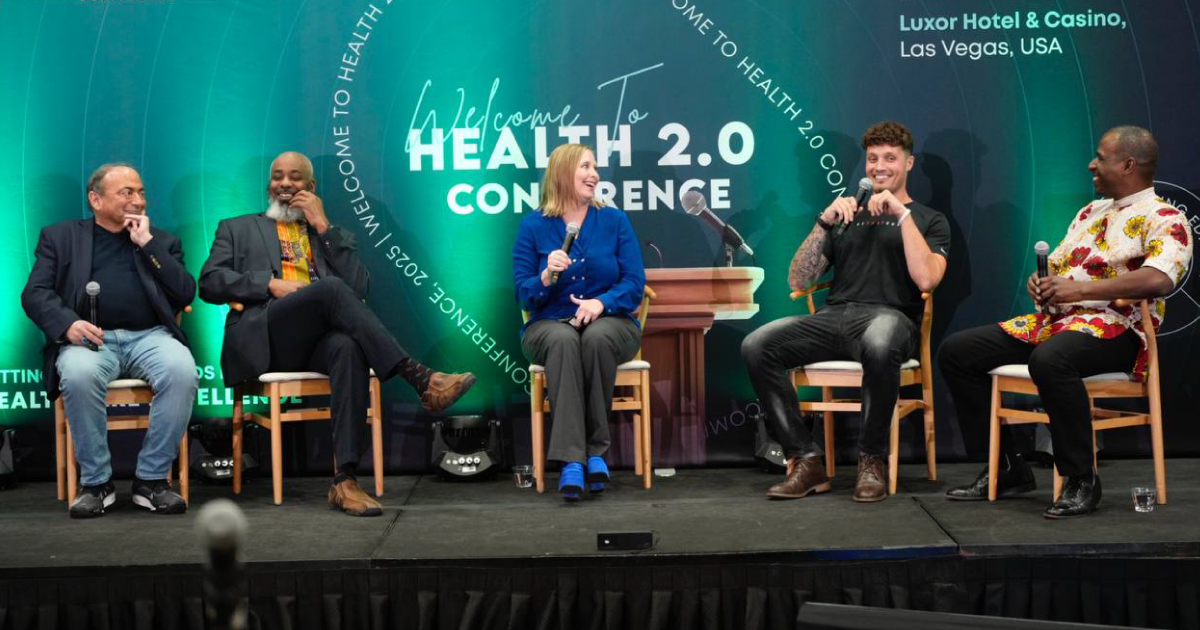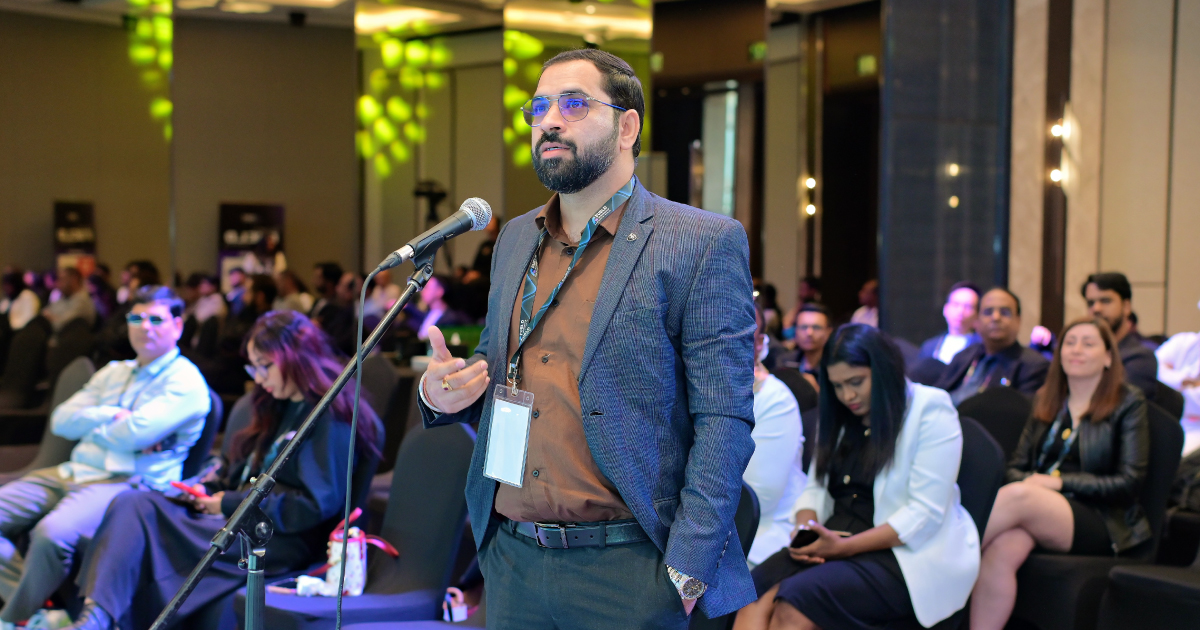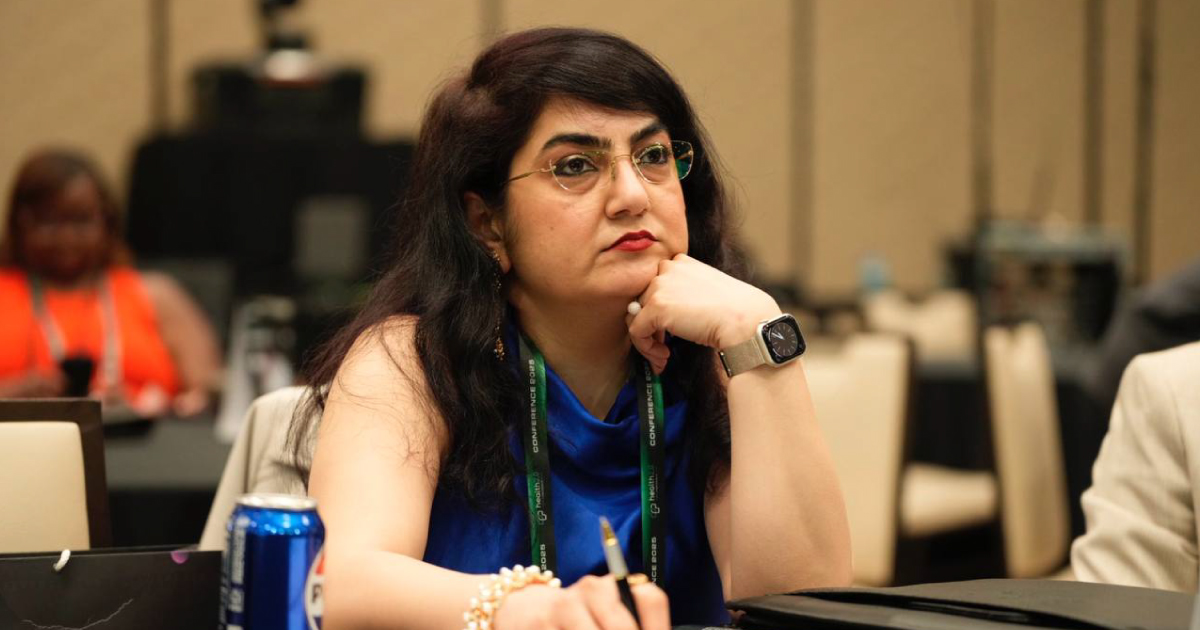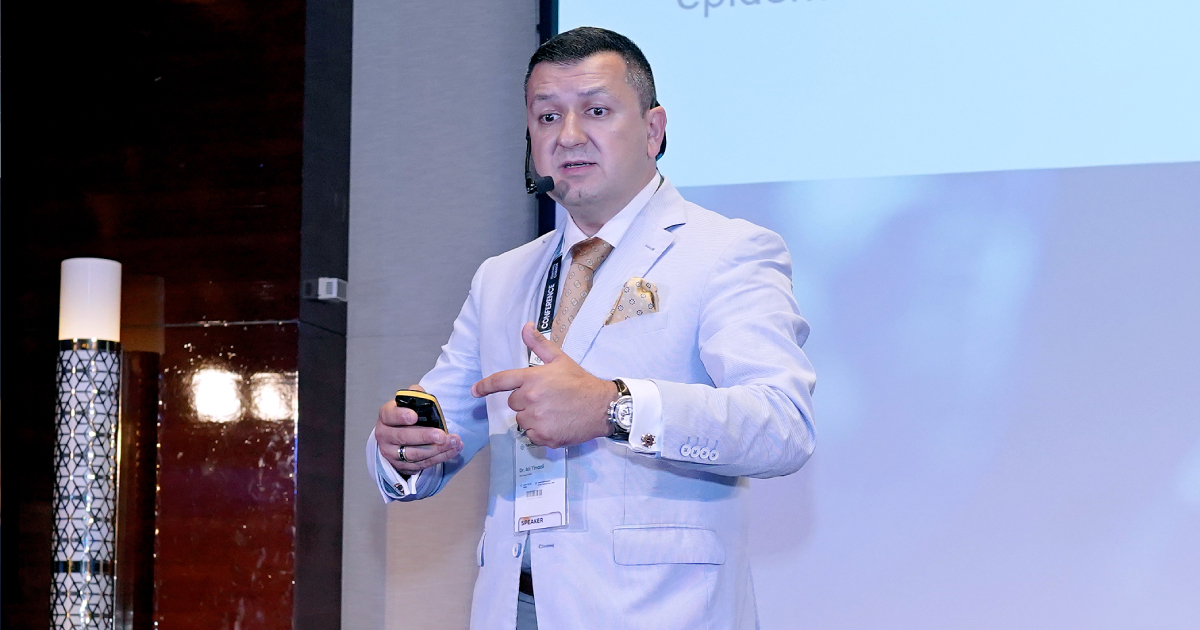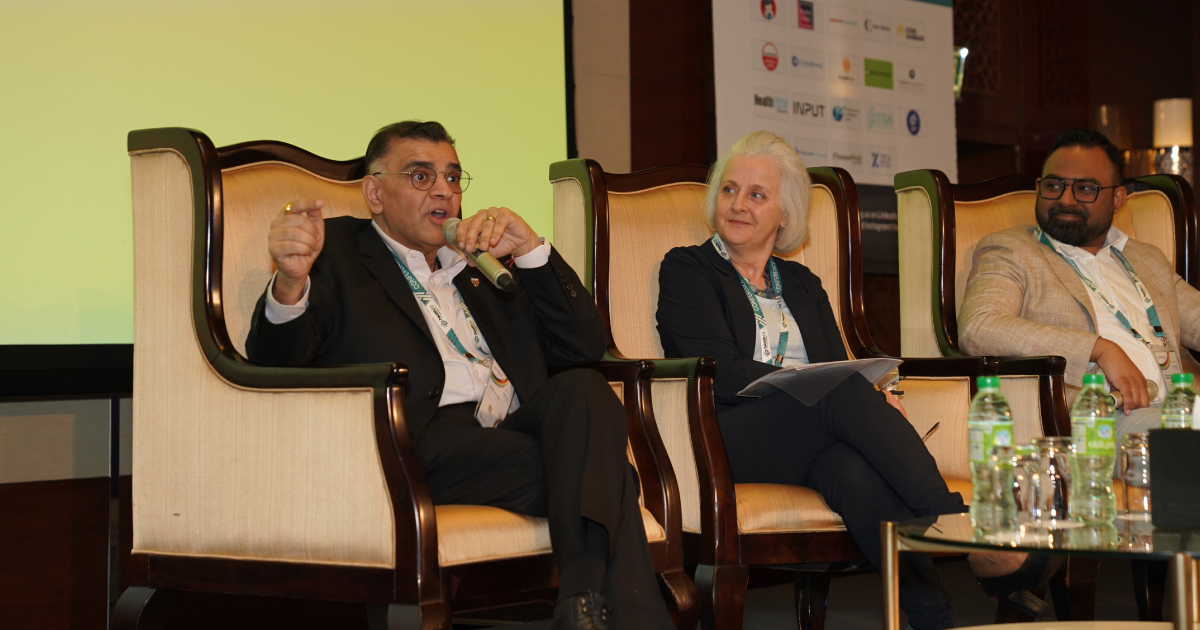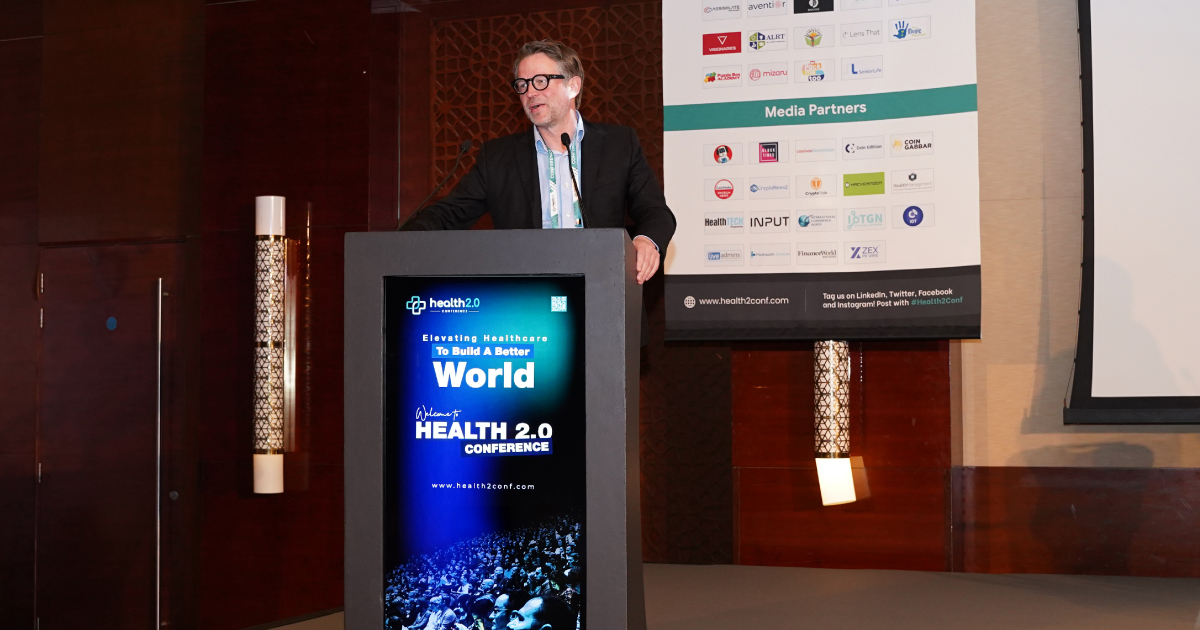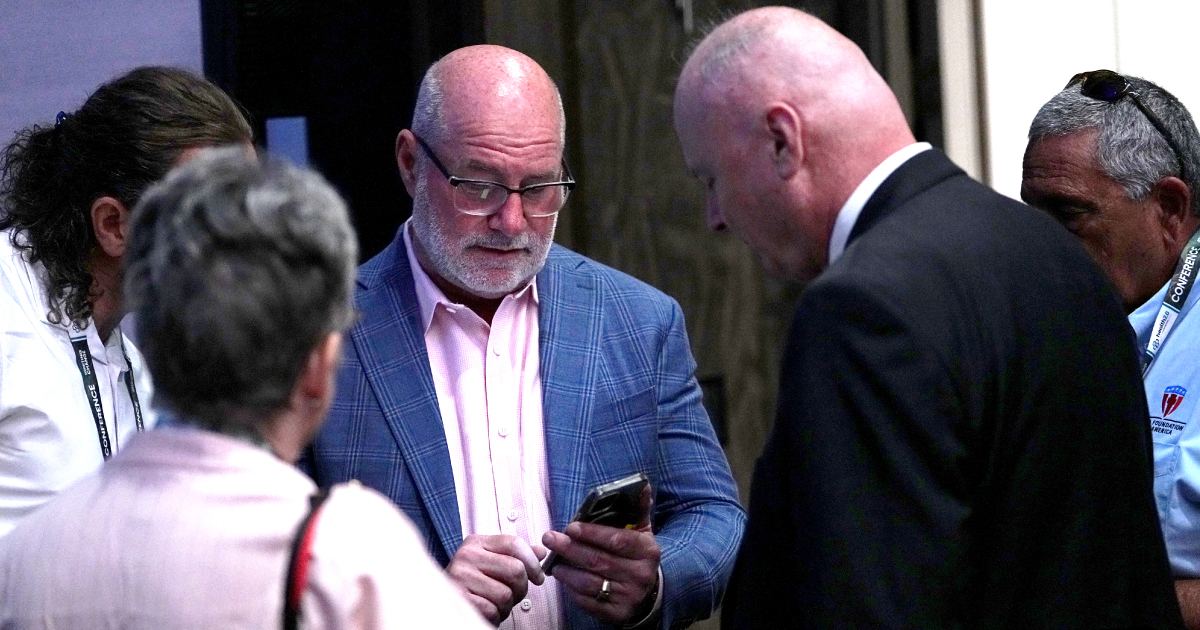Balancing innovation with patient access is one of the most pressing debates in healthcare today. Patents fuel research and drive groundbreaking discoveries, but they also risk limiting affordability and delaying treatments that patients urgently need. The question of how to protect innovation while ensuring equitable access continues to divide opinion across the industry.
This very conversation took center stage at our Health 2.0 Conference, where a diverse panel of leaders came together to share their views on the complex intersection of patents and patients. Their exchange reflected both the urgency of the challenge and the opportunities for change at our 2025 global health conference.
The session, titled “Patents Vs. Patients: Navigating The Tensions Between Innovation & Access,” featured Yves Decadt, CEO of BioLingus; Devaki Thavarajah, Independent Volunteer at Data Transparency; Olga Shebanova, Co-CEO of AI: Dental; Dr. Eswar Iyer, Co-founder & CEO of Aikium Inc.; and Krystal Boothe, CEO and Executive Director at Wings of the Future. The following sections highlight the key insights and perspectives they shared.
Patents And Patients: Striking A Balance
Behind every new treatment lies years of research, rigorous trials, and billions of dollars in investment. Patents are designed to protect that effort, giving innovators the exclusivity they need to secure funding and bring medicines to market. As Dr. Eswar Iyer explained, this protection allows smaller companies and startups to survive in an industry where developing a single drug can take more than a decade. Without patents, the incentives to invest in discovery would weaken.
At the same time, the system creates challenges for patients. Yves Decadt highlighted that while patents are indispensable for attracting venture capital, they can also keep prices high and delay the arrival of affordable generics. The result, he noted, is a widening gap between innovation and access, leaving many patients unable to benefit from advances in medicine.
This tension set the tone for the panel at our health conference, making clear that the challenge is not whether patents are necessary, but how to balance their role in driving innovation with the urgent need to make lifesaving treatments accessible worldwide.
When Technology Meets Accessibility
Innovations in drug delivery were presented as one way to improve affordability. Yves Decadt shared how his company developed an oral pill for vaccines and insulin, supported by the Bill & Melinda Gates Foundation. Such solutions, he explained, eliminate the need for cold chain storage and reduce costs, making access more practical for patients in underserved regions.
Systemic barriers, however, continue to pose challenges. Olga Shebanova highlighted how large corporations control the majority of patents, making it harder for smaller innovators to compete. She stressed the importance of evolving legislation and regulatory support to ensure that startups can bring forward new ideas that benefit patients.
The Human Cost Of Limited Access
Behind the debate over patents are real people whose lives are shaped by what treatments they can, and cannot, access. Drawing on her experience as a patient advocate, Krystal Boothe spoke about individuals struggling with addiction and chronic illness. She described how expensive medications and an overreliance on traditional pharmaceuticals often leave patients worse off, stressing the need for approaches that put wellness and recovery at the center.
Adding another layer to this challenge, Olga Shebanova pointed out that innovative solutions developed by smaller companies do not always reach patients. She shared how some of these firms are acquired by larger corporations, only to have their innovations sidelined to protect market dominance. The result, she noted, is that patients miss out on potential breakthroughs that could transform care.
Together, their perspectives at the Health 2.0 Conference underscored that limited access is not just about affordability, but also about systemic barriers that prevent life-changing treatments from ever reaching those who need them most.
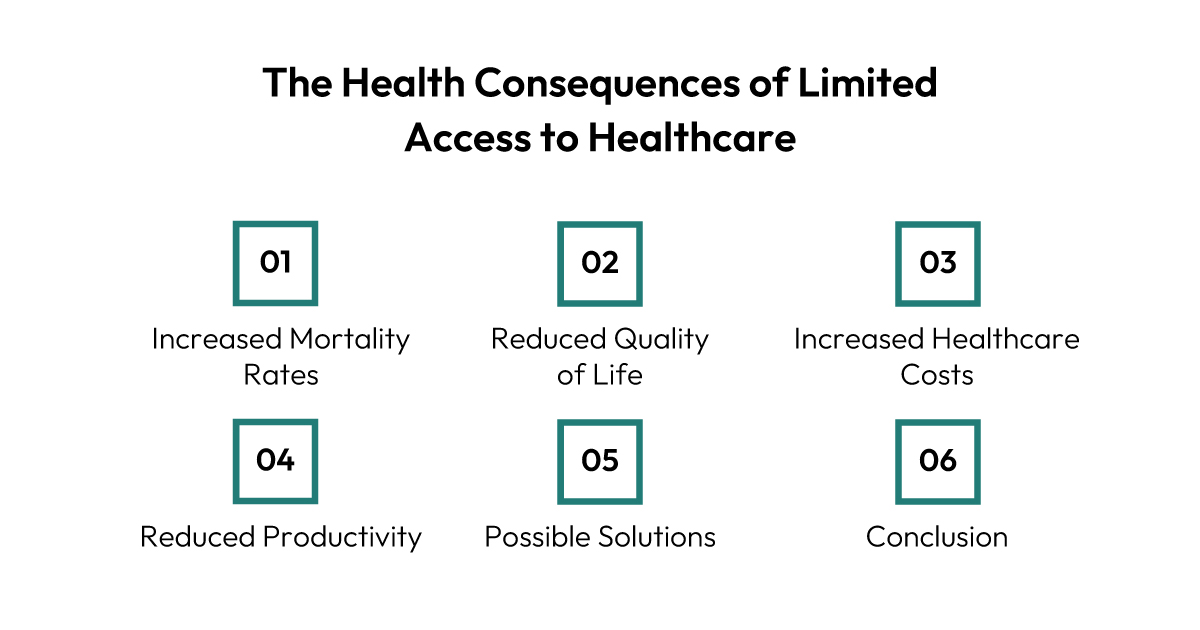
Source: Faster Capital
AI In Healthcare Carries Both Promise & Caution
Artificial intelligence was seen as both a promising tool and a field with limitations. According to Dr. Eswar Iyer, AI can reduce the time required to design molecules from years to months. This acceleration, he argued, could cut costs significantly and lead to medicines that are more affordable and accessible.
Practical applications of AI in clinical research were also discussed. Devaki Thavarajah explained how AI is being used to review clinical trial data, automatically flagging sensitive information to protect both patients and company confidentiality. While useful, she cautioned that human reviewers are still needed, as current systems cannot fully replace expert oversight.
Rethinking Funding Models In Biotech
Financing innovation is rarely straightforward, and the panel agreed it has only become tougher in today’s biotech world. Yves Decadt reflected on the recent boom-and-bust cycle, noting that venture capitalists are now far more cautious. With investors stepping back, many startups struggle to attract the support they need, even when working on strong ideas.
Olga Shebanova offered a different path, suggesting that innovators look directly to hospitals and healthcare providers for funding. These partners, she explained, see the real-world value of adopting new tools and are motivated by patient outcomes rather than patent portfolios. Together, their insights suggested that the future may depend less on traditional investors and more on customer-driven collaboration.
Finding A Path Forward In Policy & Pricing
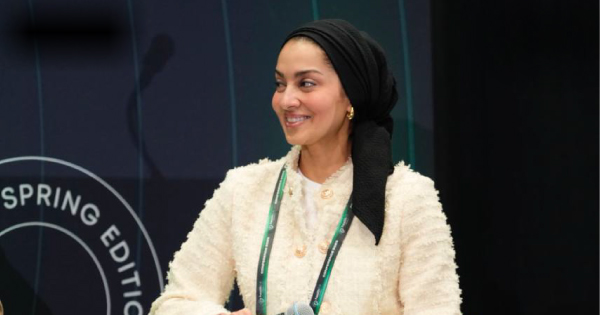
While patents remain essential, regulatory reform and pricing strategies were seen as necessary to address inequities. Yves Decadt expressed concern that drug approvals may still take up to ten years, even with AI advancements. At our health conference, he suggested that relying on technological innovation may offer faster results than waiting for systemic policy changes.
Tiered pricing and voluntary licensing were mentioned as approaches that can improve access in lower-income regions. This view was highlighted by Dr. Eswar Iyer, who emphasized that while such measures may not resolve every challenge, they represent concrete steps toward greater equity in healthcare.
Insights From Experts To Guide The Future Of Healthcare!
The panel at our 2025 global health conference showed that there is no single solution to the debate around patents and patients. Real progress will come from finding balance, encouraging innovation while also making sure treatments remain within reach for those who need them most. That balance may involve rethinking funding models, adopting new technologies, and developing smarter approaches to licensing and pricing.
What stood out throughout the discussion was the shared agreement that patients cannot be left behind in the pursuit of discovery. Each expert brought a unique perspective, yet together they emphasized the same goal: a healthcare system where innovation and access move forward side by side.
The Health 2.0 Conference reminded us that when innovators, advocates, and policymakers work together, the path forward becomes clearer. Progress is possible, and the insights shared during this panel offered a glimpse of how the future of healthcare can be both groundbreaking and inclusive.
FAQs
Q1. Why are patents both essential and controversial in healthcare?
A. Patents protect years of investment and research, making it possible for companies to continue innovating. At the same time, they often raise the cost of medicines, restrict the introduction of generics, and limit affordability for patients who need timely access to treatments.
Q2. How do patents impact smaller biotech companies differently from larger corporations?
A. For smaller companies, patents can be the only way to secure venture capital and survive. However, larger corporations often hold a majority of patents and dominate the market, creating barriers for smaller innovators to bring their products to patients.
Q3. Can artificial intelligence replace human expertise in clinical research?
A. AI can accelerate processes like molecule design and data review, but experts agree it cannot fully replace human judgment. Human oversight ensures accuracy, addresses ethical concerns, and manages the nuances that technology alone cannot handle.
Q4. When and where will the next editions of the Health 2.0 Conference take place?
A. The 2025 Dubai edition is scheduled for December 8–10 at the InterContinental DFC, Dubai, offering a dynamic setting for global healthcare discussions. The 2026 USA edition will be hosted on April 7–9 at the Bellagio Hotel & Casino in Las Vegas, bringing together healthcare leaders in one of the most iconic venues in the world.
Q5. What networking opportunities are available at the Health 2.0 Conference?
A. Attendees can connect with healthcare leaders, startups, policymakers, and patient advocates. From panel discussions to informal meet-ups, the event is designed to foster meaningful partnerships that extend beyond the conference.


